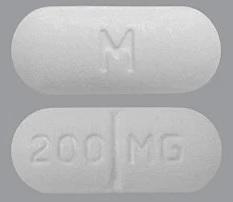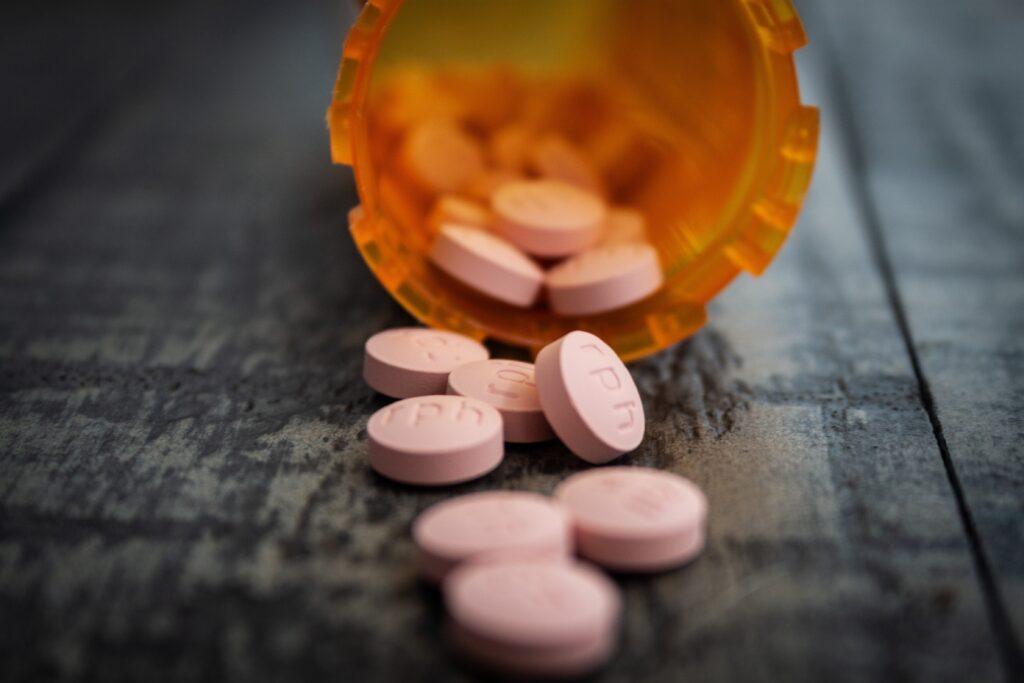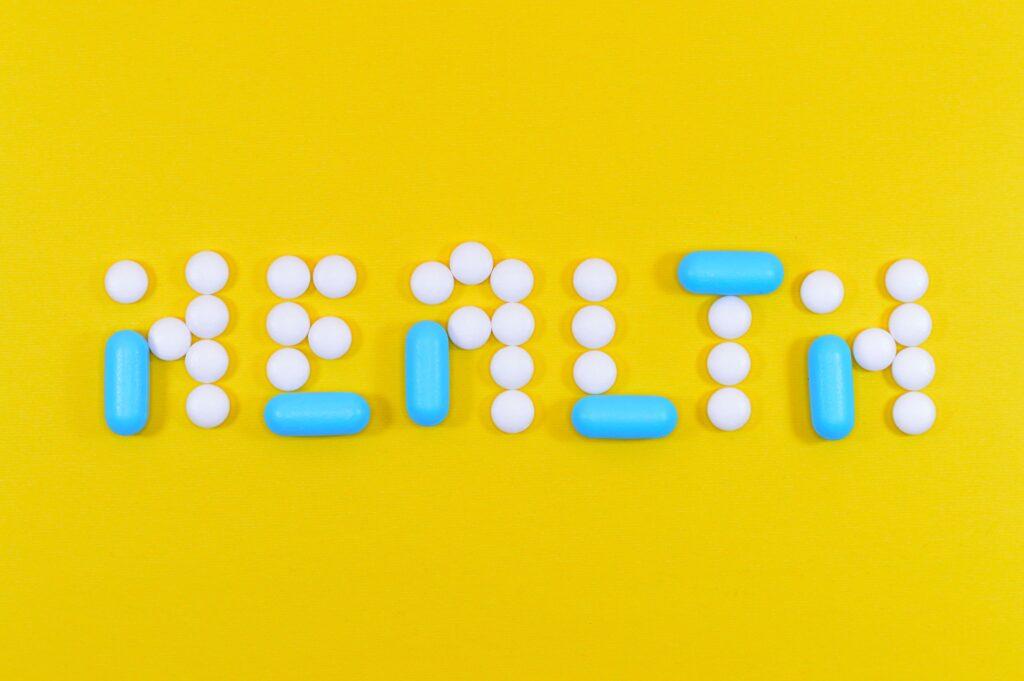Is Modafinil A Controlled Substance?
Yes, Modafinil is a controlled substance, although the classification varies from country to country. In the United States, it is classified as a Schedule IV controlled substance by the Drug Enforcement Administration (DEA). This classification indicates that modafinil has a low potential for abuse relative to substances classified in higher schedules. However, it still carries a risk of dependence and misuse.
Modafinil is also regulated and classified as a prescription-only medication in many other countries, including the United Kingdom, Australia, and Canada. This means it can only be legally obtained with a valid prescription from a licensed healthcare professional.
The classification of modafinil as a controlled substance is primarily based on its stimulant properties and the potential for misuse or abuse. While it is not considered as addictive as substances in higher schedules, some individuals may develop a psychological dependence on modafinil, mainly when used in high doses or for prolonged periods.
Following the prescribed dosage and usage instructions a healthcare professional provides is essential when taking modafinil. Using modafinil without a prescription or in excessive amounts can have adverse effects and legal consequences. It is always recommended to consult with a healthcare provider for proper guidance and to ensure compliance with local regulations regarding the use of modafinil.
What Is Provigil (Modafinil)?
Provigil is the brand name for the medication modafinil. Modafinil is a central nervous system stimulant that promotes wakefulness and is primarily used to treat excessive daytime sleepiness associated with narcolepsy, obstructive sleep apnea, and shift work sleep disorder.
Provigil (modafinil) works by affecting certain chemicals in the brain that control sleep and wakefulness. It is believed to enhance alertness and reduce fatigue by increasing the release of dopamine, a neurotransmitter involved in regulating wakefulness and motivation.
The medication is available in tablet form and is typically taken once daily, either in the morning or as directed by a healthcare professional. The prescribed dosage can vary depending on the treated condition and individual response.
Provigil (modafinil) is known for improving cognitive function and enhancing mental performance. It is sometimes used off-label for conditions such as attention deficit hyperactivity disorder (ADHD), depression, and cognitive impairment associated with multiple sclerosis and Parkinson’s disease.
Provigil (modafinil) is a prescription medication and should only be used under the supervision and guidance of a healthcare professional. Following the prescribed dosage and instructions is essential, and informing your doctor of other medications or health conditions to avoid potential interactions or complications.

Skip To:
Learn More:
Get Help. Get Better. Get Your Life Back.
Searching for Accredited Drug and Alcohol Rehab Centers Near You?
Even if you have failed previously and relapsed, or are in the middle of a difficult crisis, we stand ready to support you. Our trusted behavioral health specialists will not give up on you. When you feel ready or just want someone to speak to about therapy alternatives to change your life call us. Even if we cannot assist you, we will lead you to wherever you can get support. There is no obligation. Call our hotline today.
(844) 597-1011Is Modafinil A Controlled Substance? Popular FAQs
-
Is Provigil Medication Effesctive?
Yes, Provigil (modafinil) is an effective medication for treating excessive daytime sleepiness associated with narcolepsy, obstructive sleep apnea, and shift work sleep disorder. It promotes wakefulness and reduces fatigue, allowing individuals to stay alert and function better during their waking hours.
-
Is Modafinil Controlled Substance?
Modafinil is classified as a controlled substance in many countries, including the United States. In the U.S., it is categorized as a Schedule IV controlled substance by the Drug Enforcement Administration (DEA). The classification may vary from country to country, but modafinil is generally regulated due to its stimulant properties and potential for misuse or abuse.
Modafinil Factsheet
Modafinil Overview
Modafinil is a medication used to promote wakefulness and reduce excessive daytime sleepiness. It is primarily prescribed for narcolepsy, obstructive sleep apnea, and shift work sleep disorder. Modafinil affects certain chemicals in the brain, enhancing dopamine activity to improve alertness and reduce fatigue.
It is available in tablet form and is typically taken once a day. While it is effective for its intended uses, modafinil is also a controlled substance in many countries due to its stimulant properties and potential for misuse or abuse. Using modafinil as a healthcare professional directs and follows local regulations is essential.
Modafinil Addiction Signs
- Increased tolerance: Needing higher doses of modafinil over time to achieve the same desired effects.
- Withdrawal symptoms: Experiencing symptoms such as fatigue, mood swings, irritability, and difficulty concentrating when attempting to reduce or stop modafinil use.
- Compulsive use: Feeling a strong urge or compulsion to use modafinil, even when it is no longer necessary or appropriate.
- Neglecting responsibilities: Prioritizing modafinil use over essential obligations, such as work, school, or relationships.
- Failed attempts to quit: Trying to stop or reduce modafinil use but being unable to do so successfully.
- Preoccupation with modafinil: Constantly thinking about or seeking opportunities to obtain and use modafinil.
Modafinil Addiction Treatment
- Medical detoxification: In cases of severe addiction, medical detoxification may be necessary to manage withdrawal symptoms safely. This process involves gradually reducing modafinil use under medical supervision.
- Behavioral therapies: Various forms of behavioral therapy, such as cognitive-behavioral therapy (CBT), can effectively treat modafinil addiction. These therapies help individuals identify and change unhealthy thought patterns and behaviors associated with drug use.
- Support groups: Participating in support groups, such as Narcotics Anonymous (NA), can provide a supportive environment where individuals can share their experiences, receive encouragement, and learn coping strategies for maintaining sobriety.
- Individual counseling: One-on-one counseling sessions with a therapist or addiction counselor can help individuals explore the underlying causes of their addiction, develop healthier coping mechanisms, and set goals for recovery.
- Medication-assisted treatment (MAT): In some cases, medication may be prescribed to aid in treating modafinil addiction. Medications such as modafinil and other medications used to manage addiction or related symptoms may be utilized under the guidance of a healthcare professional.
- Lifestyle changes and support: Making positive lifestyle changes, such as adopting a healthy routine, engaging in regular exercise, and building a solid support network, can significantly contribute to recovery and reduce the risk of relapse.
Modafinil Addiction Statistics
Understanding the prevalence and potential risks associated with modafinil addiction is essential in promoting responsible and informed usage of this medication. In this brief overview, we present three noteworthy statistics regarding modafinil addiction. These statistics shed light on the misuse of modafinil among college students, its co-occurrence with substance abuse, and the potential for dependence. By examining these statistics, we can gain valuable insights into the scope and implications of modafinil addiction, prompting a more cautious and educated approach to its use.
5-10%
Approximately 5-10% of college students reported non-medical use of modafinil, such as taking higher doses or using it without a prescription.
Source: Journal of Clinical Psychopharmacology
11%
Among individuals seeking treatment for substance use disorders, about 11% reported non-medical use of modafinil.
Source: Journal of Substance Abuse Treatment
5%
A study examined modafinil use among individuals with narcolepsy and found that around 5% developed dependence symptoms or experienced withdrawal symptoms when discontinuing modafinil.
Source: Journal Sleep Medicine

Get Your Life Back
Find Hope & Recovery. Get Safe Comfortable Detox, Addiction Rehab & Dual Diagnosis High-Quality Care.
Hotline(844) 597-1011
What is the Provigil Drug Class?
Provigil (modafinil) belongs to the drug class known as central nervous system stimulants. This class of medications encompasses a group of drugs that have stimulating effects on the central nervous system, primarily the brain and spinal cord.
Central nervous system stimulants are widely used in the medical field to address various conditions, including sleep disorders, attention deficit hyperactivity disorder (ADHD), and narcolepsy. These medications increase the activity of neurotransmitters in the brain, such as dopamine and norepinephrine, which play crucial roles in regulating wakefulness, attention, and alertness.
Provigil, a central nervous system stimulant class member, specifically acts on the brain’s wakefulness-promoting centers. It is primarily prescribed to treat excessive daytime sleepiness associated with narcolepsy, obstructive sleep apnea, and shift work sleep disorder.
Compared to other central nervous system stimulants, such as amphetamines or methylphenidate, Provigil has a distinct pharmacological profile. It is considered to have a different mechanism of action and a lower potential for abuse and addiction. This is why Provigil is classified as a Schedule IV controlled substance by the Drug Enforcement Administration (DEA) in the United States, indicating a relatively lower risk of abuse than substances in higher schedules.
Provigil’s use in treating other conditions beyond sleep-related disorders is an area of ongoing research. Off-label use of Provigil has been explored in conditions such as ADHD, depression, and cognitive impairment associated with medical conditions like multiple sclerosis and Parkinson’s disease. However, the efficacy and safety of Provigil for these off-label uses may vary, and it should only be used under the guidance and prescription of a healthcare professional.
As with any medication, it is crucial to follow the prescribed dosage and instructions provided by a healthcare professional when using Provigil. This prescription medication should not be shared or used without proper medical supervision. Adherence to prescribed guidelines helps ensure Provigil’s safe and effective use within its designated drug class of central nervous system stimulants.
Is Modafinil Addictive?
Modafinil, the active ingredient in medications like Provigil, is considered to have a lower potential for addiction compared to other stimulant drugs. However, it is not entirely risk-free and can still lead to psychological dependence or misuse in some individuals.
Studies have shown that modafinil affects certain neurotransmitters in the brain, such as dopamine, which play a role in reward and reinforcement. While the exact mechanisms of modafinil’s addiction potential are not fully understood, there have been reports of individuals developing psychological dependence on the drug, mainly when used in high doses or for prolonged periods.
It is crucial to use modafinil as directed by a healthcare professional and to follow the prescribed dosage. Taking modafinil in higher doses or more frequently than recommended can increase the risk of developing tolerance, where the body becomes accustomed to the drug’s effects and requires higher doses to achieve the same results.
Abruptly stopping modafinil after prolonged use may lead to withdrawal symptoms, including fatigue, mood swings, irritability, and difficulty concentrating. This highlights the need for gradual dose reduction and medical supervision when discontinuing modafinil.
First-class Facilities & Amenities
World-class High-Quality Addiction & Mental Health Rehabilitation Treatment
Rehab Centers TourRenowned Addiction Centers. Serene Private Facilities. Inpatient rehab programs vary.
Addiction Helpline(844) 597-1011Proven recovery success experience, backed by a Team w/ History of:
15+
Years of Unified Experience
100s
5-Star Reviews Across Our Centers
10K
Recovery Success Stories Across Our Network
- Low Patient to Therapist Ratio
- Onsite Medical Detox Center
- Comprehensive Dual-Diagnosis Treatment
- Complimentary Family & Alumni Programs
- Coaching, Recovery & Personal Development Events
We Level Up Modafinil Addiction Treatments
The treatment of modafinil addiction typically involves a combination of therapeutic approaches and support systems. Here are some common treatments for modafinil addiction:
- Behavioral Therapies: Behavioral therapies, such as cognitive-behavioral therapy (CBT), can effectively address modafinil addiction. These therapies help individuals identify and change unhealthy thought patterns and behaviors associated with drug use. They also provide strategies for coping with cravings and developing healthier coping mechanisms.
- Support Groups: Participation in support groups, such as Narcotics Anonymous (NA), can provide a supportive environment where individuals can share their experiences, receive encouragement, and learn from others who have faced similar challenges. These groups offer a sense of community and can be a valuable source of ongoing support during recovery.
- Individual Counseling: One-on-one counseling sessions with a therapist or addiction counselor can be instrumental in addressing the underlying causes of modafinil addiction. These sessions allow for a personalized approach to treatment, where individuals can explore their motivations and triggers and develop strategies to maintain sobriety.

- Medication-Assisted Treatment (MAT): In some cases, medication may be prescribed to aid in treating modafinil addiction. Medications such as modafinil and other medications used to manage addiction or related symptoms may be utilized under the guidance of a healthcare professional.
- Lifestyle Changes and Support: Making positive lifestyle changes, such as adopting a healthy routine, engaging in regular exercise, and building a solid support network, can significantly contribute to recovery and reduce the risk of relapse. These changes can help individuals establish a new, drug-free lifestyle and provide a supportive network of friends, family, or recovery mentors.
Seek professional help from addiction specialists, healthcare providers, or addiction treatment centers to determine the most suitable treatment plan for modafinil addiction. Treatment approaches may vary depending on the severity of the addiction and individual needs. Recovery is a process, and ongoing support is crucial for long-term success in overcoming modafinil addiction.
World-class, Accredited, 5-Star Reviewed, Effective Addiction & Mental Health Programs. Complete Behavioral Health Inpatient Rehab, Detox plus Co-occuring Disorders Therapy.
CALL(844) 597-1011End the Addiction Pain. End the Emotional Rollercoaster. Get Your Life Back. Start Drug, Alcohol & Dual Diagnosis Mental Health Treatment Now. Get Free No-obligation Guidance by Substance Abuse Specialists Who Understand Addiction & Mental Health Recovery & Know How to Help.
We Level Up Modafinil Addiction Dual Diagnosis Treatment
We Level Up is a highly regarded rehabilitation center known for its exceptional addiction treatment and specialized care for individuals with co-occurring mental health disorders. Their approach sets them apart by combining evidence-based therapies, expert medical attention, and a holistic outlook, providing a comprehensive and practical pathway to recovery for those struggling with substance abuse and mental health challenges. The facility aims to facilitate physical and psychological healing while promoting spiritual and emotional growth.
At We Level Up, personalized care is at the core of their treatment approach. Individual counseling plays a vital role, with compassionate therapists creating a supportive environment for individuals to explore the root causes of their addiction and address emotional issues that contribute to their challenges. Tailored treatment plans are developed through one-on-one therapy to align with each person’s unique needs, goals, and preferences. Therapists employ various modalities such as cognitive-behavioral therapy, dialectical behavior therapy, motivational interviewing, and trauma-focused therapy, helping individuals transform negative thoughts, emotions, and behaviors associated with their addiction and mental health problems.
Experience Transformative Recovery at We Level Up Treatment Centers.
See our authentic success stories. Get inspired. Get the help you deserve.
Start a New Life
Begin with a free call to an addiction & behavioral health treatment advisor. Learn more about our dual-diagnosis programs. The We Level Up Treatment Center Network delivers recovery programs that vary by each treatment facility. Call to learn more.
- Personalized Care
- Caring Accountable Staff
- World-class Amenities
- Licensed & Accredited
- Renowned w/ 100s 5-Star Reviews
We’ll Call You
Watch The Prescription Drug Abuse & Prescription Medication Addiction Recovery & Sobriety Story Informative Video
Video Script
“I wanted my life back. I was a shell of a person. I wanted to be trusted; I wanted relationships back that I lost, mainly my children and family. It started innocent enough, I got into a car accident, and then I got sucked into the whole, you know, medication issue with the pills. And before I knew it, I was in a cloud. I was sucked in by addiction, and with my mind, I kept thinking it was OK because a doctor was prescribing this for me, a doctor was giving me this, a doctor was giving me that.
So, I didn’t think I was doing anything wrong. Level Up supports my family and my relationships with my family, and they’ve helped me grow as a person. When I first started there, I was so intimidated and scared, you know? But, they’ve taught me, they’ve taught me how to come into my own. And then, you know, when I get the call from my twenty-one-year-old daughter in the middle of the day, to say ‘I love you, Mom.’ that’s amazing.”
Jen’s Addiction Recovery Testimonial.
Search We Level Up Is Modafinil A Controlled Substance? Resources
Sources
- Drug Enforcement Administration (DEA) – Controlled Substance Schedules: DEA Controlled Substance Schedules
- U.S. Food and Drug Administration (FDA) – Drug Information for Modafinil: FDA Modafinil Drug Information
- National Institute on Drug Abuse (NIDA) – Stimulant Prescription Medications: NIDA Stimulant Prescription Medications
- Substance Abuse and Mental Health Services Administration (SAMHSA) – Find Treatment: SAMHSA Find Treatment
- National Institutes of Health (NIH) – MedlinePlus: Modafinil: NIH MedlinePlus Modafinil
- U.S. Department of Health and Human Services (HHS) – Mental Health Services Locator: HHS Mental Health Services Locator
- U.S. Drug Enforcement Administration (DEA) – Diversion Control Division: DEA Diversion Control Division
- National Library of Medicine (NLM) – DailyMed: Modafinil Prescribing Information: NLM DailyMed Modafinil Prescribing Information
- U.S. Department of Justice – Drug Enforcement Administration (DEA) – Drug Fact Sheet: Modafinil: DEA Modafinil Drug Fact Sheet
- U.S. National Library of Medicine (NLM) – ClinicalTrials.gov: Modafinil: NLM ClinicalTrials.gov Modafinil


